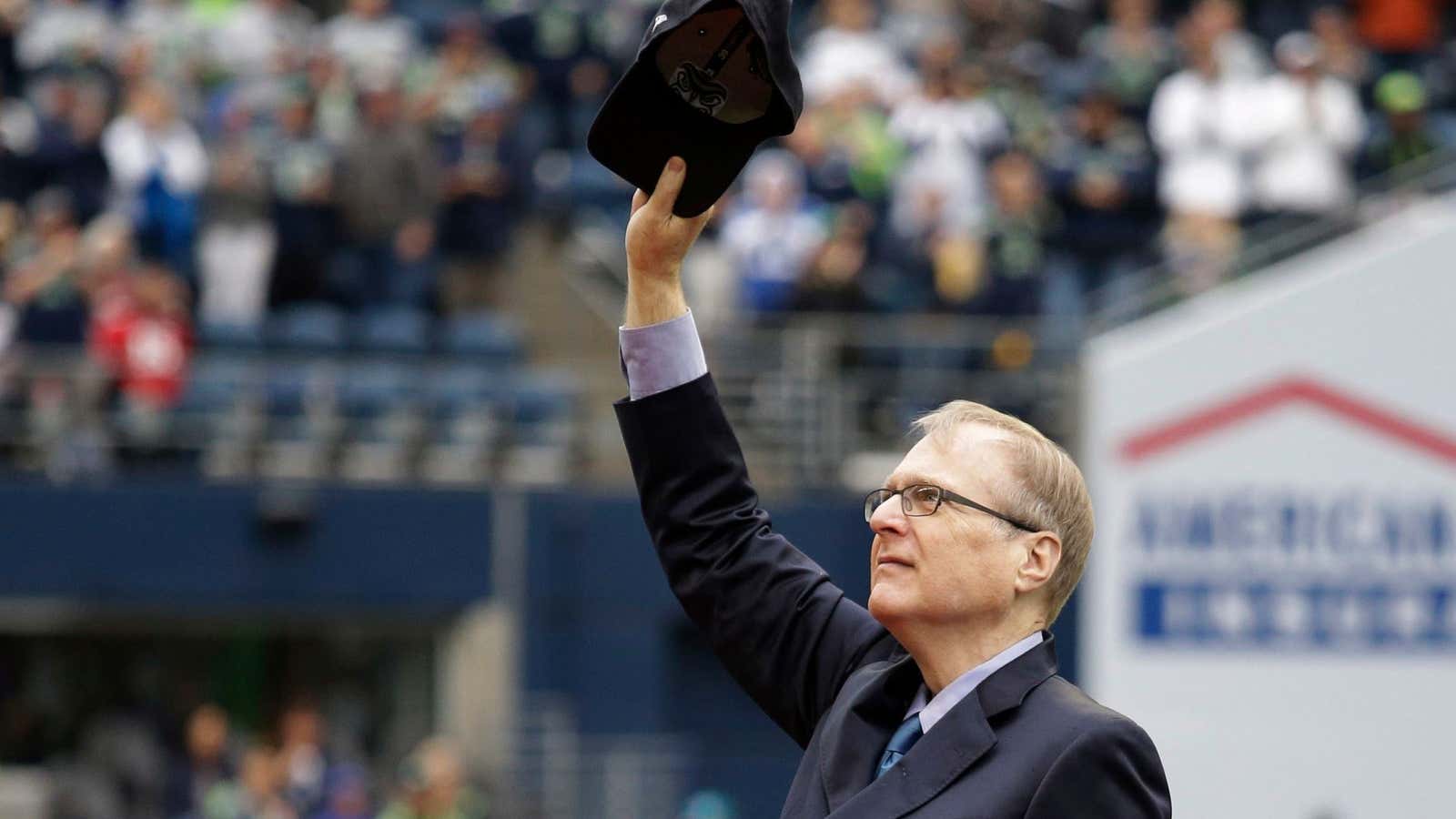Microsoft cofounder Paul Allen was diagnosed with Hodgkin’s lymphoma in 1982. At first, he itched, then came the night sweats, and eventually he discovered a hard bump the size of a pencil eraser tip on his neck.
“I felt as bulletproof as most people under 30; I took my health for granted,” Allen wrote in his autobiography Idea Man.
The doctors caught it early, and their treatment ended up giving Allen another 36 years, during which he went on to amass incredible wealth, several professional sports teams, and an enduring legacy in technology and philanthropy.
He battled another bout of cancer in 2009, this time non-Hodgkin’s lymphoma, which he announced earlier this month had returned. He died of complications from the disease today (Oct. 15) at 65.
For Allen, his 1982 diagnosis was seen as a wake-up call, according to his 2011 autobiography, an excerpt of which was published in Vanity Fair.
“If I were to relapse, it would be pointless—if not hazardous—to return to the stresses at Microsoft,” he wrote. “If I continued to recover, I now understood that life was too short to spend it unhappily.”
The unhappiness at Microsoft had been building up over an intense partnership with his cofounder Bill Gates, whom he had known since high school. While their friendship had since mended, their last year running the company together was especially tumultuous.
In Allen’s book, he describes a calculating cofounder who sometimes schemed behind his back to achieve his goals. When Gates wanted to bring on his Harvard classmate Steve Ballmer—who would ultimately take over as CEO from 2010 to 2014—to help run the business side of things, Allen had stipulated that he was OK offering up to 5% equity in the company. But he later discovered through a copy of an offer letter—sent while Allen was away—that Gates had offered him 8.75%. When confronted with this “major breach of faith,” Gates decided to make up the difference by taking it out of his share.
But there was one particularly heated moment that seemed to have pushed Allen over the edge:
One evening in late December 1982, I heard Bill and Steve speaking heatedly in Bill’s office and paused outside to listen in. It was easy to get the gist of the conversation. They were bemoaning my recent lack of production and discussing how they might dilute my Microsoft equity by issuing options to themselves and other shareholders. It was clear that they’d been thinking about this for some time.
Unable to stand it any longer, I burst in on them and shouted, “This is unbelievable! It shows your true character, once and for all.” I was speaking to both of them, but staring straight at Bill. Caught red-handed, they were struck dumb. Before they could respond, I turned on my heel and left.
Both Gates and Ballmer ended up apologizing for the incident, but that moment helped Allen realize he couldn’t stay longer at Microsoft, and resigned two months later.
